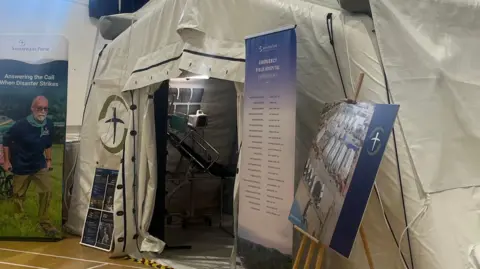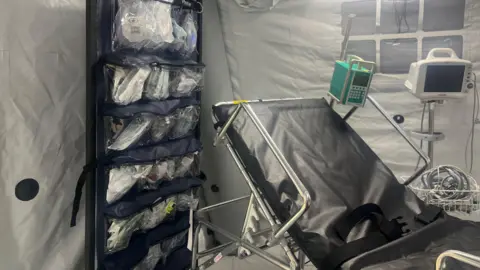From Craigavon wards to Ukraine field hospitals
 BBC
BBC"One day you're working in Craigavon Area Hospital; the next, you're boarding a flight to a war zone."
Dr Stephen Reaney, from Northern Ireland, travels the world as a volunteer, providing urgent medical care in disaster-hit countries.
In 2023, he worked in southern Turkey, after a deadly earthquake killed more than 55,000 people.
The year before that, Dr Reaney was in Ukraine, after Russia launched a full-scale military invasion.

"We're seeing the typical war casualties – men, women, and children," he told BBC News NI.
"It's very traumatic for the staff, but you just get on with it, particularly when children come in with severe burns, for example, it can be very distressing.
"But we do our best for our patients."
When he is at home, Dr Reaney works as an urgent care doctor for the Southern Health and Social Care Trust.
But for about four months of the year, he travels with the Christian organisation Samaritan's Purse to countries worst hit by crises.
It sets up field hospitals to provide emergency care.
He described how a woman who had been trapped in a collapsed building following the Turkey earthquake survived after receiving two weeks of intensive care at the field hospital there.

Rewarding but 'traumatising'
An example of one of the organisation's tent-like hospital rooms was on display at Dundonald Elim Church.
It contained four trauma beds, basic vital sign monitors, ultrasound scanners and ECG monitoring equipment.
"The diagnostics are really quite simple, but we can do a lot with very little," Dr Reaney said of the set-up.
However, one of the main challenges for him and his colleagues is to use medical resources carefully while deployed.
"Once they're gone, they're gone, until the next shipment," he said.
"There's little wastage.
"We work efficiently and we do the most for the most.
"You just have to switch gears and remember you're not back in Northern Ireland.
"You're in a very resource-limited environment, working in a small team, so that's a challenge."
Dr Reaney told BBC News NI that while volunteering abroad, he and his colleagues work 12-hour shifts, seven days a week, treating patients who have come through "some horrendous experiences".
He said the role is a rewarding one but acknowledged it can also be "traumatising", particularly for medics working on their first emergency response.
